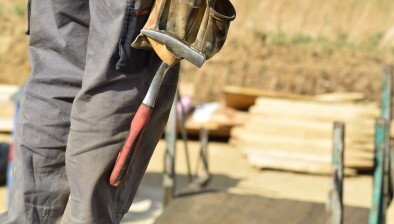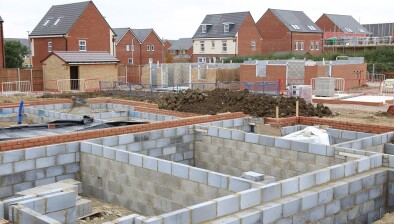Heavy rain blamed for lower monthly construction output

Monthly construction output is estimated to have decreased by 0.5% in volume terms in July 2023, according to the Office for National Statistics (ONS), as heavy rainfall and low temperatures led to delays.
The decrease follows a 1.6% increase in June 2023, with the monthly value in level terms in July 2023 at £15,546 million.
The decrease in monthly output came solely from a 1.3% decrease in repair and maintenance, with new work increasing 0.1% on the month.
At the sector level, five out of the nine sectors saw a fall in July 2023, with the main contributors to the monthly decrease being private housing repair and maintenance, and private housing new work, which decreased 3.9% and 2.2%, respectively.
Anecdotal evidence suggested the effect of heavy rainfall and lower-than-average temperatures in July 2023 leading to delays in planned work; additional evidence indicated a continued slowdown in the housing sector.
Alongside the monthly decrease, construction output was flat in the three months to July 2023; this came from a 0.3% increase in new work, offset by a 0.4% decrease in repair and maintenance.
Clive Docwra, managing director of property and construction consultancy McBains, said: “Following the positive June figures which showed a return to growth after two successive monthly falls in output, the construction sector will feel it’s back to square one with today’s news.
“A significant factor is high mortgage rates denting demand for new homes, reflected by the continued sluggish performance in volume housebuilding. My guess is that we could see more private housebuilders forging closer partnerships with local authorities and housing associations to pursue mixed tenure models such as social housing and shared ownership, which are less impacted by volatility in the wider property market.
“Our clients also tell us that even though building material prices are falling, this is taking time to feed through the supply chain, putting a further squeeze on delivery.”
Fraser Johns, finance director at Beard Construction, added: “With the UK seeing the wettest July for more than a decade, it should come as no surprise to see overall construction output take a dip. The continued slowdown in the housing sector is certainly helping to skew the entire industry picture, as both private housing repair and maintenance, and new work continue to face sustained pressure.
“Although only marginally, it is a positive to see new work increasing – not just in the month, but in the three months to July. It’s a reminder that while some sectors are facing real challenges, others are opening up with clients continuing to find their confidence. This has been reflected on the ground at Beard and in our future pipeline opportunities, as demand remains strong – particularly within frameworks.
“While we have seen signs of improvement in recent months, especially with inflation easing and the stabilisation of supply and costs, the industry has a whole remains very volatile with the picture changing from month to month. There remains an element of controlling what we can control; whether that is in our tendering and our cost plans, our ability to explore buoyant sectors, or in our conversations with both clients and suppliers.”

















